
Last year at my 40th Demontreville Retreat, one of the exercises that we were given by the Retreat Master included a very challenging set of thoughts. The worksheet for the activity was labeled as “A Testament.” I took the worksheet and instructions home with me. It had fourteen tasks or reflections to complete. I did not desire to complete them during the retreat. It is now almost a year since my retreat, and I have decided to make the mental and emotional effort necessary to complete this “Testament.”
I am going to complete one or two reflections every other day for the next few weeks. I would love it if you would do these tasks along with me. If you would like to share your thoughts, that would be great, but I am not expecting anyone to do so. I would like to know if you find any benefit in completing these activities.
The worksheet started with these instructions:
Imagine that this is the last day of your life on earth. In the time that you have left, you want to leave a “Testament” for your family and friends. Each of the following could serve as chapter headings for your “Testament.”
- These are the things that I have loved in life.
Wow, where to start? The effort brings tears to my eyes. I fear that I have loved and lost too much. In Alfred Lord Tennyson’s famous poem “In Memoriam A.H.H.” he writes:
I hold it true, whate’er befall;
I feel it when I sorrow most;
‘Tis better to have loved and lost
Than never to have loved at all. —- Canto XXVII
If only I could agree with Tennyson. My soul does cry out for remorse and forgiveness but giving it to myself seems hard to come by. The people that loved me and cared about me that I scorned in my life are mostly shadows now of another era. An epoch that I want to forget about. Can we really change? Have I really changed. I am ashamed to list what I have loved because I was so careless and thoughtless with so much of it. If only I believed in a God of Forgiveness, it would make this effort so much easier.
I won’t say I have ever loved a thing. I have never loved money, cars, or possessions. I have loved the thought of fame and fortune. I have never completely let go of the idea that around the next corner awaits my vindication. Fame and fortune will anoint me as the true Knight that I dreamed of being. When I was ten years old, I wanted to be an astronaut. I wanted to fly into space on a rocket ship years before Captain Kirk was even born (at least on TV.) I loved the idea of adventure and discovering new places, things and ideas. But my dreams were dashed by reality. I was too short to be an astronaut and my eyes were not good enough to be a pilot. Biological requirements that were set by who knows and for what reasons that dashed all hope of my dreams of going to the stars.
I have loved a few people. Similar to my relationship with God, I am an Atheist when it comes to love. Can you really love a car? Can you love your new house? Love seems to me something that must be reciprocal. Only humans can really reciprocate love. Even pets are only capable of licking your face. However, with humans, most of the love in the world is a misnomer for lust. Love at first sight is the most egregious example of lust to ever exist. I see a woman with nice legs or nice breasts, and I fall “IN LOVE.” Another idiotic phrase that should be stricken from humanity. Six weeks later, we are married and promise to “Love and Cherish” each other for life. This bliss or LOVE may last for a few months or years until the lust has all but disappeared and reality has set in.
I have never ever fallen in love with anybody much less anything. I love Karen. I love my sister Jeanine. I love several old friends. Love for me has to be earned. It has to develop over time as with the “Velveteen Rabbit”, “It’s a thing that happens to you. When a child loves you for a long, long time, not just to play with, but REALLY loves you, then you become Real.” — Margery Williams
Can I child really love a stuffed toy? The logician in me says NO. The cynic in me says NO. The realist in me says NO. My heart says YES, thereby negating much of what I have probably already said about love. Love is in one sense logical and rational. In another sense, it is emotional, illogical, and irrational. I still question loving your car or loving your house, but I do not question the love that some people may have for their pets or even an inanimate object. Reason tells me that a pet stuffed rabbit can somehow personify “love” much better than my desire for a Ferrari ever could. I still can’t imagine in what warped dimension I might live where I could fall in love with a Ferrari or even cry when it was gone.
I shall add to my list of “Loves” the following:
- Books
- Ideas
- Writing
- Music
- Food
- Travel
- Adventure
- Adversity
- Challenges
Number 2 of 14 Reflections in this Testament exercise is as follows:
- These are the experiences that I have cherished.
I am posting this as a sort of “heads up” to give you some time to think about your own experiences. I will reflect on mine in my next blog:
Here are some of my favorite quotes on love:
- Jesus said, “Greater love hath no man than this, that a man lay down his life for his friends.” — John 15:13
- “I hope it’s okay if I love you forever.” — Ally Maine, “A Star Is Born”
- “Love makes your soul crawl out from its hiding place.” — Zora Neale Hurston
- “Darkness cannot drive out darkness: only light can do that. Hate cannot drive out hate: only love can do that.” ― Martin Luther King Jr.
- “Love is that condition in which the happiness of another person is essential to your own.” ― Robert A. Heinlein
- Love is composed of a single soul inhabiting two bodies. — Aristotle

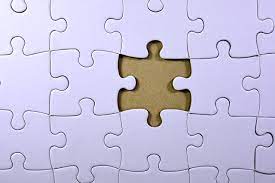 Suffice it to say, I am awestruck by the reply from ChatGPT. She/he might just eliminate the need for many experts including pundits like me, psychiatrists, doctors, lawyers, professors, sociologists, psychologists and even you. I am scratching my head as to what I can add about the subject that ChatGPT did not provide you. I can tell you a story though that ChatGPT cannot concerning a major non-closure in my own life. One episode among many that has left me with regrets. I can also tell you that it is not always easy to get closure on incomplete episodes. Many things can get in the way. Perhaps the primary barriers either being the unwillingness of one party to try or to reciprocate an effort and of course our own egos.
Suffice it to say, I am awestruck by the reply from ChatGPT. She/he might just eliminate the need for many experts including pundits like me, psychiatrists, doctors, lawyers, professors, sociologists, psychologists and even you. I am scratching my head as to what I can add about the subject that ChatGPT did not provide you. I can tell you a story though that ChatGPT cannot concerning a major non-closure in my own life. One episode among many that has left me with regrets. I can also tell you that it is not always easy to get closure on incomplete episodes. Many things can get in the way. Perhaps the primary barriers either being the unwillingness of one party to try or to reciprocate an effort and of course our own egos.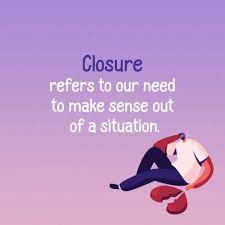 few years later, I decided to reach out to him again. You can guess his reaction. He was angry and insulting. I decided to drop my effort. Over the years, we have had some interactions by phone or email but nothing that has substantially reinvigorated our former friendship. I am not sure whether he feels any loss, but I can honestly say that I miss him. He had many good qualities and there were many times that we spent together that I fondly remember. I have been the one over the past few years to try to reach out, but my efforts have gone nowhere. At this point, I have decided that “people change” and that he is not the person that he once was. This is a good excuse or rationale for my letting go and forgetting him. You can no doubt pick many holes in my logic.
few years later, I decided to reach out to him again. You can guess his reaction. He was angry and insulting. I decided to drop my effort. Over the years, we have had some interactions by phone or email but nothing that has substantially reinvigorated our former friendship. I am not sure whether he feels any loss, but I can honestly say that I miss him. He had many good qualities and there were many times that we spent together that I fondly remember. I have been the one over the past few years to try to reach out, but my efforts have gone nowhere. At this point, I have decided that “people change” and that he is not the person that he once was. This is a good excuse or rationale for my letting go and forgetting him. You can no doubt pick many holes in my logic. I could point out that few things worth having ever come easy. The problem is that too many of us grow up today with the fantasy that as the song in My Fair Lady goes, “With a little bit of luck, you can have it all.” I grew up with a phrase that was popular in my neighborhood that went “He got the breaks.” This meant basically that he/she got what they got cause they got lucky. They did not have to work hard. They did not have to practice. They did not have to study. They simply had to get the “Breaks.” It took me years to realize the fallacy in thinking that luck has much to do with what one gets in life. Two of my now favorites quotes are:
I could point out that few things worth having ever come easy. The problem is that too many of us grow up today with the fantasy that as the song in My Fair Lady goes, “With a little bit of luck, you can have it all.” I grew up with a phrase that was popular in my neighborhood that went “He got the breaks.” This meant basically that he/she got what they got cause they got lucky. They did not have to work hard. They did not have to practice. They did not have to study. They simply had to get the “Breaks.” It took me years to realize the fallacy in thinking that luck has much to do with what one gets in life. Two of my now favorites quotes are: A life without closures will be a life not really lived well. The more closures we can accomplish, the more satisfying our lives will be. Perhaps only a life lived with closures can be a life lived without regrets. We will all have regrets in our lives. Our incomplete episodes are links in a chain that we forge as we go through life. A key question is “how long do we want our chain to be?” The more effort we make to complete these episodes, the shorter our chain will be, and I think the happier our lives will be. Look at the incomplete episodes in your life today. Which ones still cause you heartache and regrets. Is it too late to do anything about them? Would it be worth the effort? What would it cost you to try?
A life without closures will be a life not really lived well. The more closures we can accomplish, the more satisfying our lives will be. Perhaps only a life lived with closures can be a life lived without regrets. We will all have regrets in our lives. Our incomplete episodes are links in a chain that we forge as we go through life. A key question is “how long do we want our chain to be?” The more effort we make to complete these episodes, the shorter our chain will be, and I think the happier our lives will be. Look at the incomplete episodes in your life today. Which ones still cause you heartache and regrets. Is it too late to do anything about them? Would it be worth the effort? What would it cost you to try?
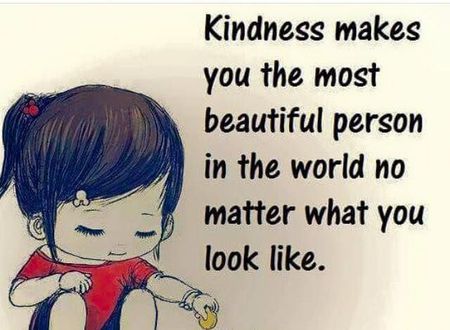


 Nevertheless, we still have the occasional spat, and they usually leave us both feeling quite depressed and disappointed. I am mostly disappointed with myself for not handing things well. It seems I too often say things or discuss things very differently than we have agreed on. We have found and used many models for dealing with conflict. One of our favorites is the “DESC” model. This stands for “Describe” what is happening in neutral terms. Talk about how this makes you feel in terms of “Emotions.” “Specify” what you would like to see happen differently. Define what the “Consequences” will or could be for change. Consequences are best provided that are positive, such as we will feel closer together. When we stick to this model things seem to go well. Our discussions stay on track and our resolutions come more effortlessly. When we stray from the model, accusations and insinuations escalate and the discussion becomes difficult if not painful.
Nevertheless, we still have the occasional spat, and they usually leave us both feeling quite depressed and disappointed. I am mostly disappointed with myself for not handing things well. It seems I too often say things or discuss things very differently than we have agreed on. We have found and used many models for dealing with conflict. One of our favorites is the “DESC” model. This stands for “Describe” what is happening in neutral terms. Talk about how this makes you feel in terms of “Emotions.” “Specify” what you would like to see happen differently. Define what the “Consequences” will or could be for change. Consequences are best provided that are positive, such as we will feel closer together. When we stick to this model things seem to go well. Our discussions stay on track and our resolutions come more effortlessly. When we stray from the model, accusations and insinuations escalate and the discussion becomes difficult if not painful. The other kind of kindness I will call “Emotional Kindness.” This is not doing things but saying things either verbal or non-verbal that honor and appreciate the other person. It respects their feelings more than their actions. It might be “I love you” or it might be an appreciation of something the other person says or thinks. It is building up the other person’s self-esteem and not putting down anything they might express or care about.
The other kind of kindness I will call “Emotional Kindness.” This is not doing things but saying things either verbal or non-verbal that honor and appreciate the other person. It respects their feelings more than their actions. It might be “I love you” or it might be an appreciation of something the other person says or thinks. It is building up the other person’s self-esteem and not putting down anything they might express or care about.
 A friend of mine once told me that you catch more flies with sugar than you do with vinegar. Over the years, I have been told that I am too negative. I have been labeled as a pessimist who more often sees the bad things in life rather than the good things. I have been accused of being a skeptic and even a nihilist. I have decided to turn over a new leaf. I am determined to share more positive thoughts in my blogs. I want you to see the world as a wonderful place full of joy and good will. I was going to start my new focus next year, but I decided “why wait.” “He who hesitates is lost.” Thus, I give you the secret to living the life that I am sure you want to live. Just BE:
A friend of mine once told me that you catch more flies with sugar than you do with vinegar. Over the years, I have been told that I am too negative. I have been labeled as a pessimist who more often sees the bad things in life rather than the good things. I have been accused of being a skeptic and even a nihilist. I have decided to turn over a new leaf. I am determined to share more positive thoughts in my blogs. I want you to see the world as a wonderful place full of joy and good will. I was going to start my new focus next year, but I decided “why wait.” “He who hesitates is lost.” Thus, I give you the secret to living the life that I am sure you want to live. Just BE: Happy. Happy. Happy. Happy. Happy. Happy. Happy. Happy. Happy. Happy. Happy. Happy. Happy. Happy. Happy. Happy. Happy. Happy. Happy. Happy. Happy. Happy. Happy. Happy. Happy. Happy. Happy. Happy. Happy. Happy. Happy. Happy. Happy. Happy. Happy. Happy. Happy. Happy. Happy. Happy. Happy. Happy. Happy. Happy. Happy. Happy. Happy. Happy. Happy. Happy. Happy. Happy. Happy. Happy. Happy. Happy. Happy. Happy. Happy. Happy. Happy. Happy. Happy. Happy. Happy. Happy. Happy. Happy. Happy. Happy. Happy. Happy. Happy. Happy. Happy. Happy. Happy. Happy. Happy. Happy. Happy. Happy. Happy. Happy. Happy. Happy. Happy. Happy. Happy. Happy. Happy. Happy. Happy. Happy. Happy. Happy. Happy. Happy. Happy. Happy. Happy. Happy. Happy. Happy. Happy. Happy. Happy. Happy. Happy. Happy.
Happy. Happy. Happy. Happy. Happy. Happy. Happy. Happy. Happy. Happy. Happy. Happy. Happy. Happy. Happy. Happy. Happy. Happy. Happy. Happy. Happy. Happy. Happy. Happy. Happy. Happy. Happy. Happy. Happy. Happy. Happy. Happy. Happy. Happy. Happy. Happy. Happy. Happy. Happy. Happy. Happy. Happy. Happy. Happy. Happy. Happy. Happy. Happy. Happy. Happy. Happy. Happy. Happy. Happy. Happy. Happy. Happy. Happy. Happy. Happy. Happy. Happy. Happy. Happy. Happy. Happy. Happy. Happy. Happy. Happy. Happy. Happy. Happy. Happy. Happy. Happy. Happy. Happy. Happy. Happy. Happy. Happy. Happy. Happy. Happy. Happy. Happy. Happy. Happy. Happy. Happy. Happy. Happy. Happy. Happy. Happy. Happy. Happy. Happy. Happy. Happy. Happy. Happy. Happy. Happy. Happy. Happy. Happy. Happy. Happy.





 A few more months went by and one day I decided to come home from work early. As I entered my house, I heard screams coming from upstairs. I went to a desk and grabbed a loaded Colt Commander 45 ACP that I kept ready for emergencies. I feared that Ashley was being attacked by some unknown intruder. I ran up the stairs and into our bedroom. There on the bed was Ashley and one of the young lawyers from my old law firm. They were both nude and she was on top of him riding him like a bucking bronco. What I thought were screams of pain were screams of ecstasy. I had never heard anything like that from Ashley during our entire marriage.
A few more months went by and one day I decided to come home from work early. As I entered my house, I heard screams coming from upstairs. I went to a desk and grabbed a loaded Colt Commander 45 ACP that I kept ready for emergencies. I feared that Ashley was being attacked by some unknown intruder. I ran up the stairs and into our bedroom. There on the bed was Ashley and one of the young lawyers from my old law firm. They were both nude and she was on top of him riding him like a bucking bronco. What I thought were screams of pain were screams of ecstasy. I had never heard anything like that from Ashley during our entire marriage.
 The concept of tracking time brings forth images of tracking some wild beast in the woods. Deer, moose, bear, cougars, tigers all leave very distinctive tracks. Time also leaves distinctive tracts. Time leaves physical as well as emotional tracks on all of us. Not to mention the tracks that time leaves on the environment. Emotional tracks are evident in the greater cautiousness and fears that we have as we age. From experience, once burned, we no longer want to get so close to the flame. Indeed, many of us will not even go near the fire again. Divorce, rejection, death, pain all leave emotional scars. For some of us they may never quite heal. Physical tracks show up as lines, creases, joint aches, hair thinning, broken bones and disease. I often joke that physically I am aging more like cheese then a fine wine. I am getting squishier and somewhat moldy around the edges.
The concept of tracking time brings forth images of tracking some wild beast in the woods. Deer, moose, bear, cougars, tigers all leave very distinctive tracks. Time also leaves distinctive tracts. Time leaves physical as well as emotional tracks on all of us. Not to mention the tracks that time leaves on the environment. Emotional tracks are evident in the greater cautiousness and fears that we have as we age. From experience, once burned, we no longer want to get so close to the flame. Indeed, many of us will not even go near the fire again. Divorce, rejection, death, pain all leave emotional scars. For some of us they may never quite heal. Physical tracks show up as lines, creases, joint aches, hair thinning, broken bones and disease. I often joke that physically I am aging more like cheese then a fine wine. I am getting squishier and somewhat moldy around the edges. Perhaps you see the idea of “tracking time” through a different lens. Maybe you have a need to track your minutes and seconds each day, a twist on tracking your dollars and cents. Perhaps, if you watch your time carefully, you may have more of it. Mark down your time spent each day in an Excel spreadsheet and carefully log your corresponding activities. This last task seems somewhat obsessive to me even though I am often accused of being a Type A personality. I once worked at a job where I was required to check my work in fifteen minute intervals each day and log what I was doing during each interval. After I left this company, I decided I would never again work for anyone where I had to justify myself at this level of detail. It was simply an exercise in obsessive control and domination.
Perhaps you see the idea of “tracking time” through a different lens. Maybe you have a need to track your minutes and seconds each day, a twist on tracking your dollars and cents. Perhaps, if you watch your time carefully, you may have more of it. Mark down your time spent each day in an Excel spreadsheet and carefully log your corresponding activities. This last task seems somewhat obsessive to me even though I am often accused of being a Type A personality. I once worked at a job where I was required to check my work in fifteen minute intervals each day and log what I was doing during each interval. After I left this company, I decided I would never again work for anyone where I had to justify myself at this level of detail. It was simply an exercise in obsessive control and domination.
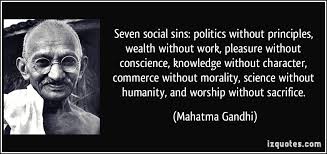

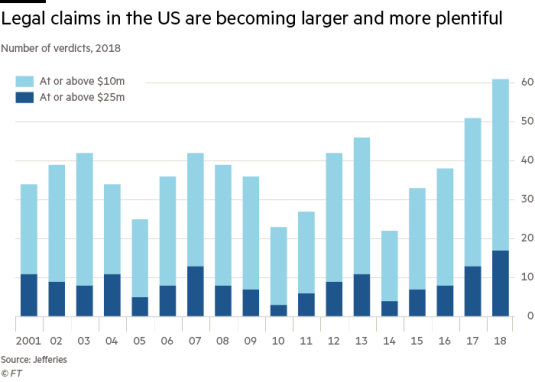
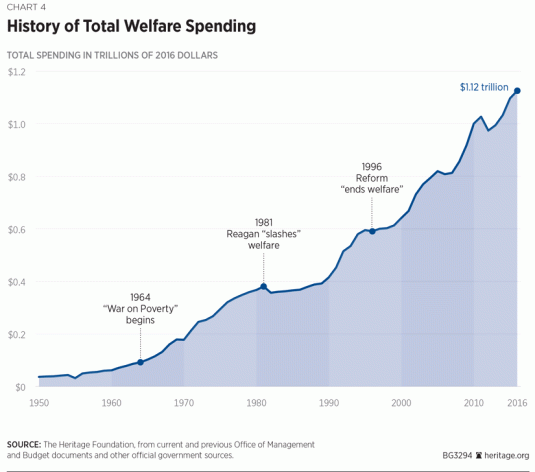


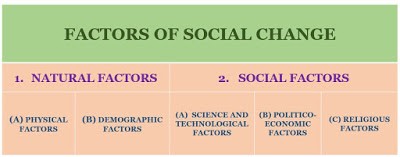




 Before you go off on a binge of happiness and celebrations, think for a minute what a positive answer to these questions might mean. There are still expectations and assumptions associated with any answer to the above questions. You assume that if you won the lottery, that you would not have to worry about paying bills, buying things you want etc. You assume that if you found true love, it would last forever and forever. You assume that finding meaning and purpose would bring you happiness. To all of these possibilities, I say maybe. You still have many choices and outcomes to each of these scenarios. These choices can leave us just as captive to our desires and wants as any of our responses to the “negative” “what ifs.”
Before you go off on a binge of happiness and celebrations, think for a minute what a positive answer to these questions might mean. There are still expectations and assumptions associated with any answer to the above questions. You assume that if you won the lottery, that you would not have to worry about paying bills, buying things you want etc. You assume that if you found true love, it would last forever and forever. You assume that finding meaning and purpose would bring you happiness. To all of these possibilities, I say maybe. You still have many choices and outcomes to each of these scenarios. These choices can leave us just as captive to our desires and wants as any of our responses to the “negative” “what ifs.”

 My conclusion is that “What ifs” are intellectually amusing as a past-time but as for practical value they are close to useless. Seldom will you ever get to apply a solution to a “What if.” The possibility of something in real life happening exactly like it did the first time is less than the chance of finding identical snowflakes or fingerprints. Heraclitus, a Greek philosopher born in 544 B.C. said, “No man ever steps in the same river twice, for it’s not the same river and he’s not the same man.” Those who forget the past may be condemned to repeat it, but the past will never be the same again. Living requires adaptability and resilience.
My conclusion is that “What ifs” are intellectually amusing as a past-time but as for practical value they are close to useless. Seldom will you ever get to apply a solution to a “What if.” The possibility of something in real life happening exactly like it did the first time is less than the chance of finding identical snowflakes or fingerprints. Heraclitus, a Greek philosopher born in 544 B.C. said, “No man ever steps in the same river twice, for it’s not the same river and he’s not the same man.” Those who forget the past may be condemned to repeat it, but the past will never be the same again. Living requires adaptability and resilience.